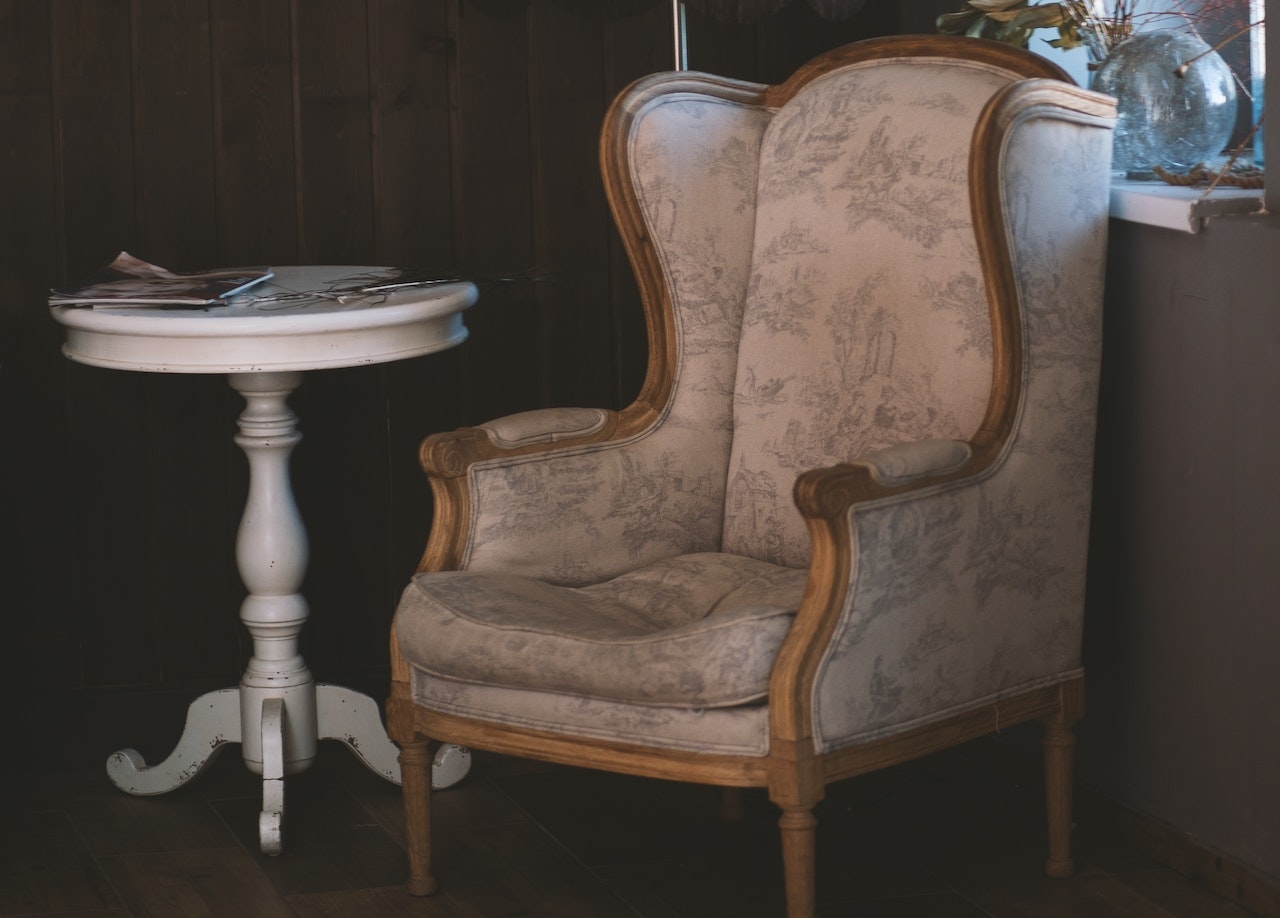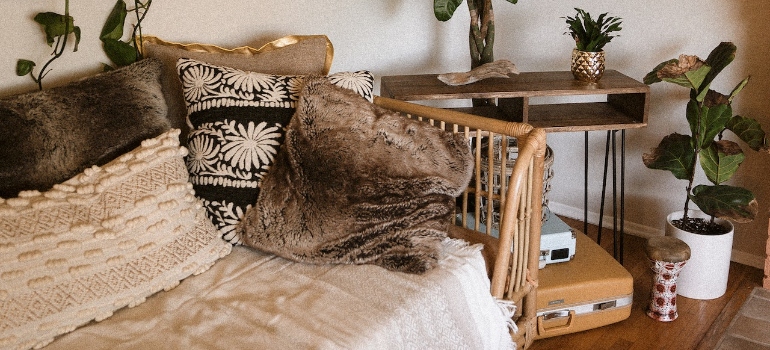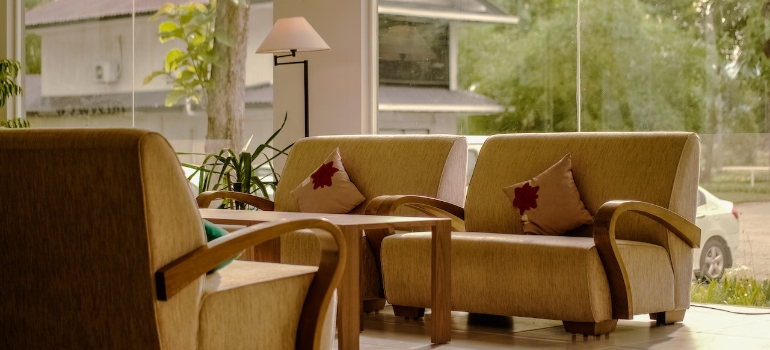Estate settlement: Storing belongings in Lynnwood during probate
get a quote
Estate settlements in the Pacific Northwest bring to the forefront a crucial concern: how best to handle belongings with the aid of storage units Lynnwood WA offers during the probate process. As you explore the complexities of this legal process in Lynnwood, the importance of proper storage will emerge as a consistent theme. Hence, this guide aims to shed light on the intricacies of storing belongings in Lynnwood during probate, ensuring you are well-prepared to address this critical aspect of estate management.
Understanding Probate in Lynnwood
Probate, by definition, is the legal process of verifying a will and ensuring the proper distribution of assets after someone’s passing. In Lynnwood, like the rest of Washington State, the process adheres to specific regulations and practices.
What is probate?
Probate is not merely a formal procedure; it represents the culmination of a person’s financial life, tying up all loose ends. It involves assessing debts, validating the will, distributing assets, and ensuring rightful heirs receive their due. Typically, the probate process can span several months, though complex estates can extend this duration. Key steps include:
- Filing the will with the appropriate court.
- Appointing an executor or administrator for the estate.
- Notifying creditors and settling debts.
- Taking inventory of assets and properties.
- Distributing the assets as per the will or state law in the absence of one.
Local regulations affecting estate settlement
Lynnwood follows Washington State’s probate laws but also has its nuances influenced by local practices and court preferences. Staying up-to-date on these localized regulations ensures smoother estate settlements, minimizing delays or potential disputes.

It’s during this process that the need for reliable short-term storage Seattle options emerges. As estates are inventoried and assets appraised, there’s often a necessity for storing belongings off-site. Be it temporarily or for more extended periods, the link between probate and storage solutions in the region is evident.
Reasons for storing belongings in Lynnwood during probate
During the estate settlement process, the handling of a decedent’s personal belongings and assets can become a point of contention or logistical challenge. So, let’s understand the central reasons why many turn to secure storage solutions.
Maintaining property value
Over time, some assets may degrade in value if not stored properly. Antiques, artwork, and even certain documents require specific conditions to retain their worth. So, by using trustworthy storage facilities, heirs can ensure that these items remain undamaged, preserving both their monetary and sentimental value.
Preventing loss or damage
Empty homes or properties might be susceptible to theft, natural disasters, or damage. Storing belongings in secure places provides a safeguard against unexpected events, ensuring the items remain intact until they are distributed or sold.
Facilitating property sale or transfer
Often, homes or properties need to be sold as part of the estate settlement. Clearing them out and staging for potential buyers can expedite sales. Having items stored away makes the property more presentable and allows real estate professionals to showcase it in the best light.
Making space for assessments and appraisals
Before distributing or selling assets, a thorough assessment or appraisal might be necessary. Removing clutter by turning to solutions like storage pods Seattle offers makes it easier for professionals to conduct an accurate asset valuation. Clearing out spaces for such evaluations becomes essential as it allows professionals unobstructed access to appraise items without hindrance and offers a streamlined approach.

Selecting a storage facility in Lynnwood
Your storage facility choice can make a significant difference, so prioritize security. A facility with 24/7 surveillance ensures belongings remain protected. Also, consider temperature control, especially if storing sensitive items such as antiques. These facilities maintain stable temperatures, preventing potential damage from temperature extremes.
Accessibility matters, too. If you foresee needing frequent access to the stored items, select a facility that offers convenient hours, on-demand door-to-door delivery and pickup, or even 24-hour access. Lastly, consider the size and type of units, especially if you’re storing larger items or a combination of different belongings.
Packing and Preparing Items for Storage
Before you start storing, sort belongings by category. It not only streamlines the packing process but also simplifies locating items later. Use quality packing materials – sturdy boxes, bubble wrap, and sealing tape. For instance, families storing old photo albums from a Lynnwood estate found that placing them in acid-free boxes helped preserve the memories longer. Label boxes clearly, detailing contents and the room they originated from. If you’re storing furniture, disassemble what you can and protect each piece using furniture covers or blankets.
Accessing and Managing Stored Belongings
Regularly check on your stored items. This doesn’t mean a weekly visit, but perhaps a quarterly check can help ensure everything remains in order. Create an inventory list before storing. A digital record or even a simple handwritten list can be invaluable in keeping track of and managing belongings. For those who have chosen a nearby self-storage Shoreline facility, it’s a common practice to use storage management apps or software to keep tabs on items, especially when handling estate belongings for multiple beneficiaries.
Conclude the storage arrangement post-probate
Once the probate process concludes, it’s time to decide the fate of the stored items. Some might be distributed among heirs, others sold, donated, or even discarded. Always refer back to the will or trust documents to ensure correct distribution. You may find it beneficial to host an estate sale, transforming stored items into funds that can be divided among beneficiaries. Remember to notify your storage facility in advance about your move-out plans and inquire about any procedures or protocols to follow.

Tips and best practices
For optimal storage experience, keep the following in mind:
- Avoid overpacking boxes. A heavier box doesn’t just strain your back; it can also damage items inside.
- Place items you might need more frequently towards the front of your storage unit.
- Opt for elevated storage, like pallets, to prevent water damage in the rare instance of flooding.
- Document with photos. A visual inventory, especially for valuable items, can be helpful for insurance purposes and peace of mind.
- Rotate items if you’re accessing the storage unit frequently so everything remains in good condition.
It becomes evident that thorough preparation and informed decisions can significantly streamline the Washington (state) estate settlement process.
Streamline estate management with optimal storage choices
The complexities of estate settlement and probate in Lynnwood underscore the importance of careful planning and diligence. As a part of the planning process, the secure storage of belongings turns out to be a key element. Hence, ensuring that valuable assets are safeguarded, easily accessible, and well-managed during the probate duration is critical. Consequently, selecting the right facility for storing belongings in Lynnwood during probate and following best practices will ensure you keep peace of mind and uphold the integrity of the estate.
